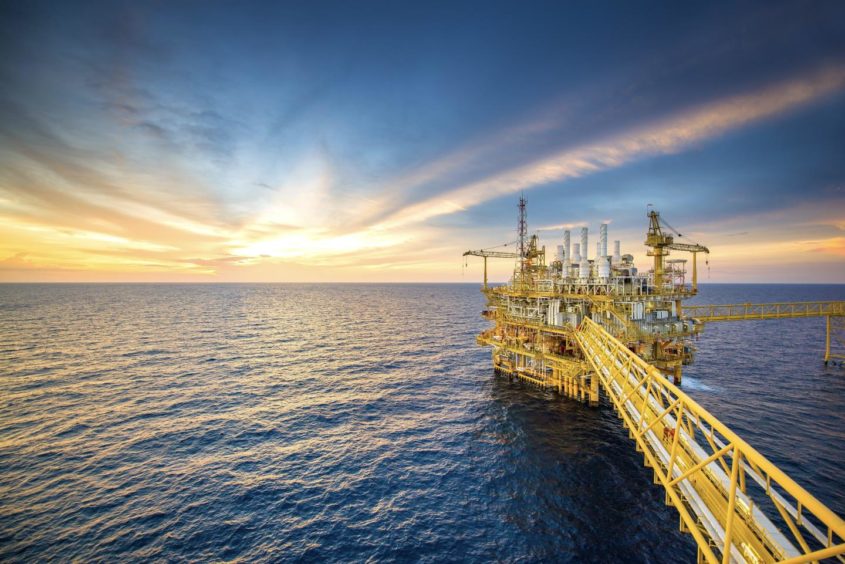
Thailand’s PTT Exploration & Production (PTTEP) is now the official operator of the G1/61 project, which covers the Erawan, Platong, Satun and Funan fields, as well as the G2/61 project, covering the Bongkot field. PTTEP (BKK:PTTEP) said it is ready to boost natural gas production to increase energy security despite being denied prior access to Erawan due to an unresolved dispute with the former operator.
Montri Rawanchaikul, chief executive Officer of PTTEP, said that the upstream player assumed operatorship of the G1/61 project from Chevron (NYSE:CVX), and the G2/61 project, which was operated by TotalEnergies, on April 24, 2022, which marked the first day of the production-sharing contract (PSC).
“To assure a smooth and safe transition of G1/61 project as well as continuously satisfy national natural gas demand, PTTEP set up a war room at the headquarter and the production platforms and worked closely with the Department of Mineral Fuels and the former operator of G1/61 project,” said PTTEP.
“PTTEP has continually upheld and been committed to execute our missions in strengthening national energy security. By assuming the operatorship of these sizeable natural gas fields of the country, which are vital sources of energy with combined production capacity of 1,500 million cubic feet per day (MMSCFD) or 60% of the nation’s gas supply, we take pride in being Thailand’s energy company and strive to conduct our energy business for the country and all people the best we can,” said Montri.
“At the G1/61 project, the company’s mission in strengthening national energy security will continue to be carried out by the staff with extensive experience of the fields, primarily supporting this seamless and smooth operation,” said PTTEP.
“On the date of operatorship handover, the natural gas production rate at the G1/61 was at 376 MMSCFD. Due to the absence of continuous development and drilling activity prior to the operatorship transfer to PTTEP, the production rate will gradually decline from the exit rate. PTTEP was previously not allowed to access the site to proceed the preparation work including the drilling campaign as planned, even though the company was granted for site access in late of 2021, it was about two years behind the plan,” warned PTTEP.
“Consequently, PTTEP will continue to produce natural gas from remaining resources of the existing production wells with utmost concern on safety and production stability. Therefore, the production rate will initially stay at approximately 250-300 MMSCFD. The company will thereafter execute its plan to ramp up the production rate to 800 MMSCFD within April 2024. Execution plan includes the acceleration of 8 wellhead platforms and subsea pipeline installation, drilling campaign of 183 production wells and procurement of additional 2 drilling rigs for another 52 production wells are all in place. PTTEP will also conduct equipment and system inspections as well as maintenance schedules to ensure the readiness and safety of the petroleum production,” said PTTEP.
“With regards to the G2/61, the production will proceed accordingly to the work plan that sets to produce 700 MMSCFD of natural gas,” added PTTEP.
“In order to meet natural gas demand while the increase of production capacity at the G1/61 project is underway, PTTEP will attempt to boost up the production rates of the Bongkot field, the Arthit project and the MTJDA project by approximately 125 MMSCFD, 60 MMSCFD, and 30-50 MMSCFD, respectively. In total, the production output will be raised by 200-250 MMSCFD to minimise impacts on Thailand,” said the company.
Unresolved dispute
The government of Thailand and Chevron have been locked in an unresolved legal dispute over decommissioning responsibilities for Erawan. Industry observers believe this was a factor in Chevron’s reluctance to grant PTTEP early access to operations.
Transferable assets at Erawan will eventually need to be decommissioned, but there is a dispute over who – Chevron or Thailand’s Department of Mineral Fuels – should be liable for the costs once the field eventually stops producing in the early 2030s.
Contract extensions were officially awarded to PTTEP in early 2019 for the Bongkot and Erawan legacy fields. Mubadala Petroleum will partner PTTEP at Erawan with a 40% share in the new contract.
PTTEP, was already a major shareholder at Bongkot, where it partnered with TotalEnergies. PTTEP will operate the new contract alone. However, given the huge investment needed to keep production going at both the ageing fields, the Thai player will welcome strategic investors.